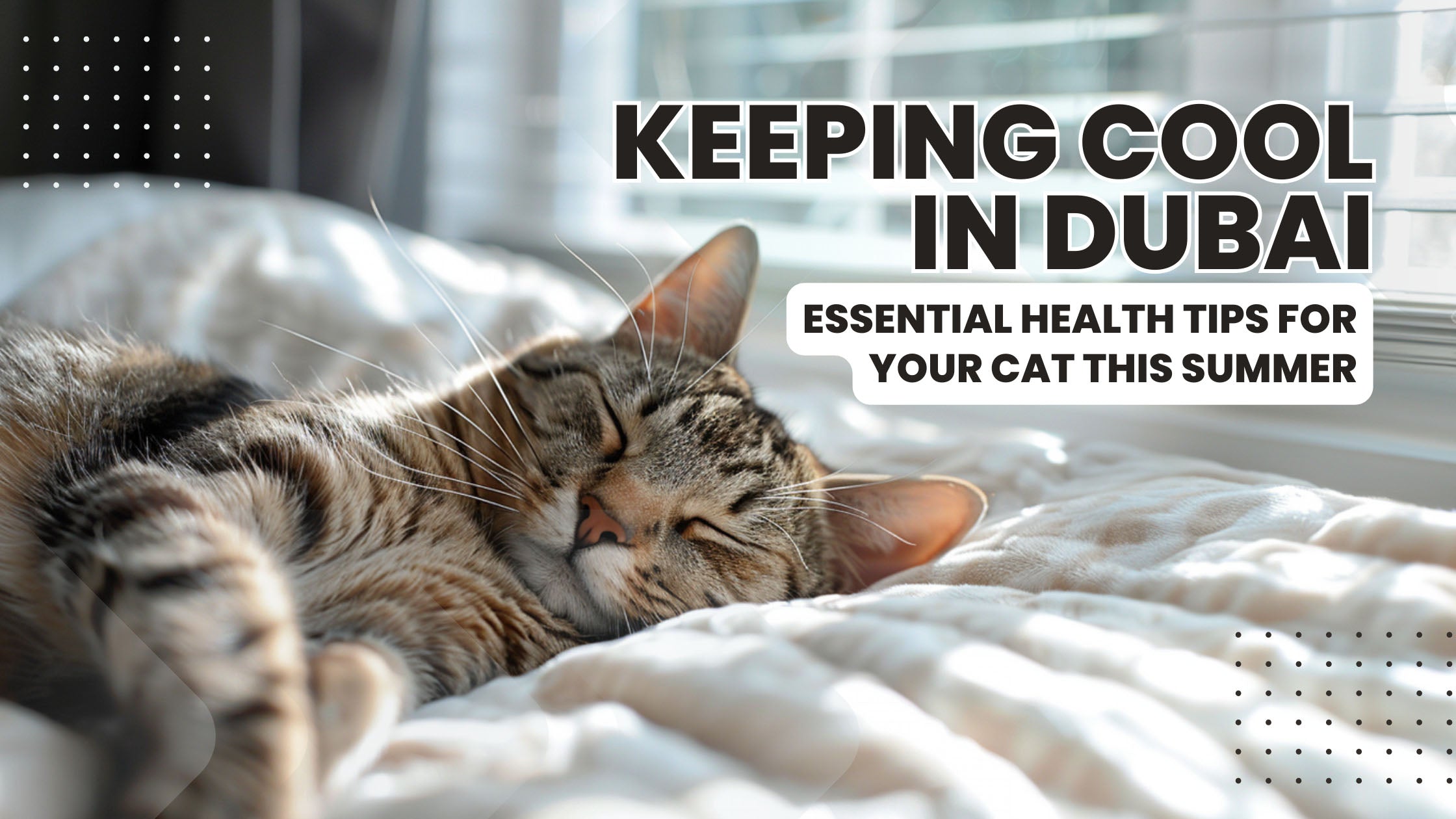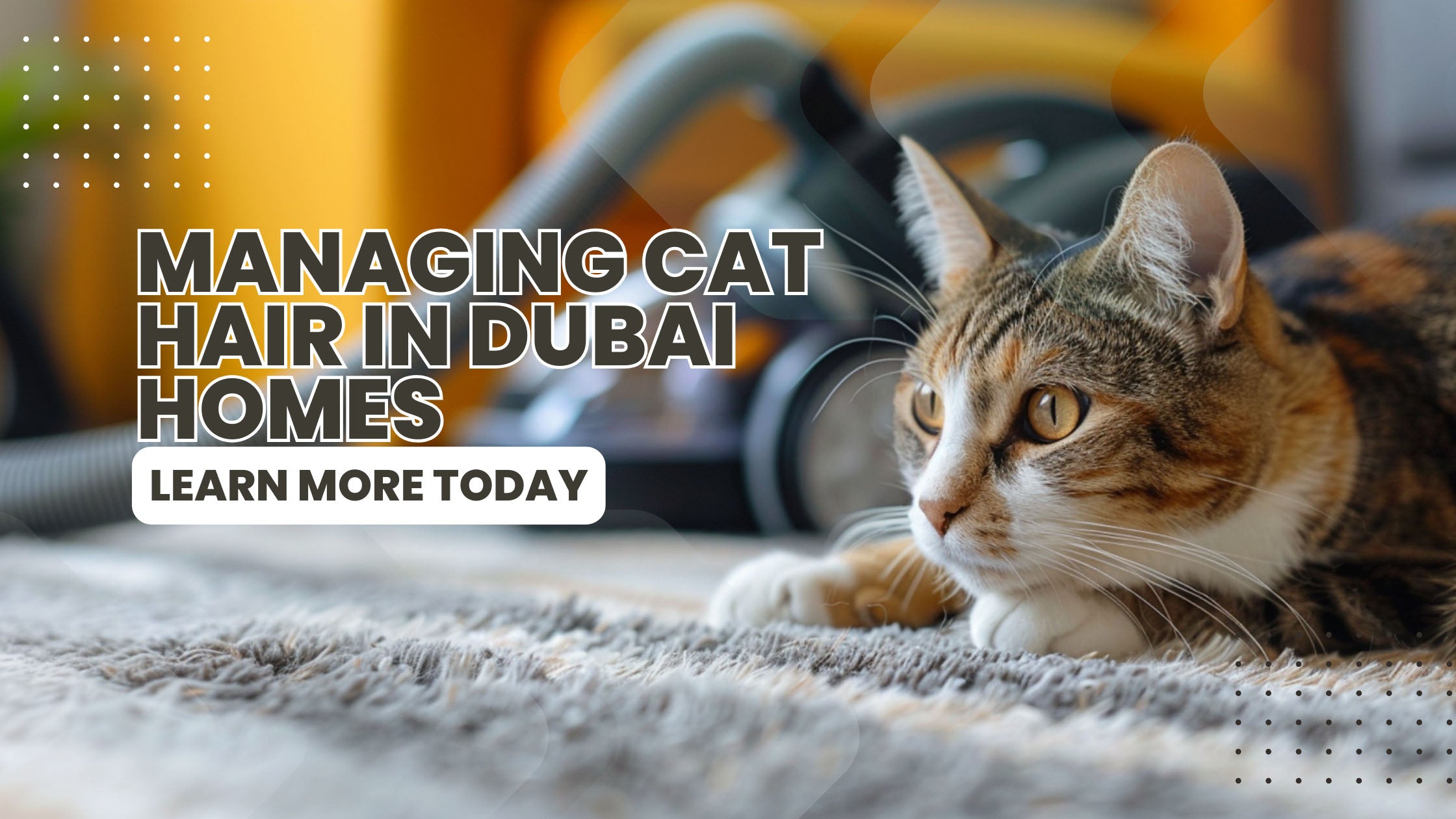
Caring for Cats in the Hot Climate of Dubai
Living in Dubai's hot climate presents unique challenges for cat owners. The intense heat and high temperatures can significantly affect the well-being of pets, particularly cats, who are more prone to heat stress. Understanding the local climate's impact on pet care is crucial for ensuring that your feline companions stay healthy and comfortable throughout the year.
Understanding Heat Risks for Cats
Cats experience heat differently from humans. Their bodies are not as efficient at cooling down, which can make high temperatures particularly dangerous for them.
Physiological Responses of Cats to Heat
Cats primarily regulate their body temperature through evaporation from their mouths and the pads of their feet. Unlike humans, cats do not sweat through their skin and can only sweat a little through their paw pads. In hot environments, cats will often seek cooler surfaces and shade to help regulate their body temperature. They also increase their grooming behavior as the evaporation of saliva during grooming helps cool their bodies. More on this can be read in various veterinary studies on cat physiology.
Common Heat-related Health Issues in Cats
Heat stress in cats can lead to several health issues, some of which can be serious or even life-threatening. Common heat-related problems include:
-
Heatstroke: This is a severe condition that can occur if a cat's body temperature rises to a dangerous level. Symptoms include panting, lethargy, drooling, red gums, vomiting, and, in severe cases, collapse and convulsions. A detailed study on heatstroke in cats provides more information on symptoms and first aid here.
-
Dehydration: In hot climates, cats are at a higher risk of dehydration due to increased body temperature and insufficient water intake. Signs of dehydration include dry gums, lethargy, and decreased skin elasticity.
-
Sunburn: Cats, particularly those with light-colored fur, are susceptible to sunburn, which can lead to skin cancer if not properly managed. Owners need to apply pet-safe sunscreen to their cat’s ears and nose to prevent burns.
Creating a Comfortable Environment
Maintaining a comfortable environment for your cat in Dubai’s hot climate is essential for their well-being. Here are some effective ways to achieve this, both indoors and outdoors.
Tips for Indoor Cooling Solutions
-
Air Conditioning: Keeping your home air-conditioned is one of the most effective ways to help your cat beat the heat. Ensure that the temperature settings are comfortable for your pet, not just for humans.
-
Cooling Mats and Pads: Available at most pet stores, cooling mats help provide a cool surface for your cat to lie on when it feels overheated.
-
Keep Curtains Closed: During the hottest parts of the day, keep your curtains or blinds closed to block out the sun and keep the indoor environment cooler.
-
Ventilate: If it’s cooler outside in the evenings, open windows to allow a cross breeze that can help cool down your home naturally.
Designing Safe and Cool Outdoor Spaces
-
Shade: Ensure there are multiple shaded areas in your outdoor spaces where your cat can relax. Consider adding cat-safe plants or a small cat tent.
-
Cool Surfaces: Outdoor tiles or access to a shaded grassy area can provide a cool surface for your cat to walk on and lie down.
-
Water Features: A small, shallow water feature can allow your cat to cool its paws and can be an additional source of drinking water, though it should always be clean and fresh.
Hydration is Key
Keeping your cat hydrated is crucial, especially in a hot climate like Dubai’s.
Importance of Regular Water Intake
Water is essential for your cat’s health, helping to regulate body temperature and prevent dehydration. Always ensure that fresh water is available.
Innovative Ways to Encourage Hydration
-
Multiple Water Bowls: Place water bowls in various locations around your home and in the shade outdoors to encourage your cat to drink regularly.
-
Cat Water Fountains: Cats are often attracted to moving water; a cat water fountain can stimulate interest and encourage more frequent drinking.
-
Flavor Infusions: Occasionally adding a flavor to the water, such as a bit of tuna juice, can make it more appealing. Make sure it is free from harmful additives and not too salty.
Nutritional Adjustments for the Heat
Adjusting your cat’s diet during the hotter months can help them better cope with the heat.
Adjusting Diets to Combat Heat
-
Increase Wet Food Intake: Wet food has higher moisture content, which helps with hydration. Consider increasing the proportion of wet food in your cat’s diet during summer.
-
Small, Frequent Meals: Feeding smaller portions more frequently can prevent your cat from becoming overly full and uncomfortably hot after eating.
Recommended Foods and Those to Avoid
-
Recommended: Lean meats and specially formulated cat food that supports hydration and nutrition.
-
Avoid: High-fat foods which can be harder to digest and can increase dehydration risk.
Health Monitoring and Veterinary Care
Cats in hot climates like Dubai are at a higher risk for heat-related health issues. It's essential for cat owners to recognize the signs of these conditions and know when to seek veterinary help.
Recognizing Signs of Heatstroke and Other Heat-related Conditions
Heatstroke in cats can manifest through several symptoms:
- Excessive panting and drooling: Unlike dogs, cats generally do not pant. If you notice your cat panting heavily, it’s a sign of distress.
- Restlessness or lethargy: Extreme tiredness or the opposite, unusual restlessness, can be signs of overheating.
- Vomiting or diarrhea: These are more severe symptoms and require immediate veterinary attention.
- Elevated body temperature: Normal cat temperature should range between 100.5°F and 102.5°F. Anything above this can be dangerous.
When to Seek Veterinary Assistance
Immediate veterinary care is crucial if your cat shows any signs of heatstroke or if you observe symptoms of severe dehydration or unusual behavior after exposure to heat. Prompt intervention can prevent long-term health issues or fatal outcomes.
Grooming for Comfort and Safety
Proper grooming is particularly important in hot climates to help cats manage the heat.
Grooming Tips Specific to Hot Climates
- Regular Brushing: Frequent brushing helps remove loose fur and decrease insulation, keeping your cat cooler. This is especially important for long-haired breeds.
- Mat Maintenance: Ensure mats are not allowed to develop, as they can trap heat close to the body.
- Bathing: Occasional cool baths can help keep your cat comfortable when temperatures soar, though many cats may not tolerate this well.
Products That Can Help
- Detangling Sprays: These can help manage mats and tangles, making brushing easier and more comfortable for your cat.
- Cooling Grooming Wipes: These wipes can be used to gently clean and cool your cat’s coat.
Interactive and Safe Playtime
Keeping your cat active is important, but during hot weather, ensuring playtime is safe becomes paramount.
Adapting Play to Keep Cats Active Yet Safe from the Heat
- Timing of Play: Schedule playtimes during cooler parts of the day, such as early morning or late evening.
- Indoor Activities: Utilize puzzle toys, laser pointers, or feather wands that can be used indoors where it is cooler.
- Hydration Breaks: Always incorporate breaks for drinking water during play sessions to keep your cat hydrated.
Stress Prevention and Behavioral Health in Cats
As the mercury climbs, so too does the stress level in our feline friends. Understanding and mitigating this stress is crucial for maintaining not only their health but also their happiness.
Understanding Stress Behaviors in Heat
Cats often exhibit specific behaviors in response to heat that can be easily mistaken for mere discomfort. However, these behaviors can indicate significant stress:
- Excessive Grooming: Cats may groom themselves more than usual to try to cool down, as the evaporation of saliva can provide a cooling effect.
- Agitation or Aggression: Just like humans, cats can become irritable when uncomfortably hot.
- Withdrawal: Seeking cooler, secluded places can often lead cats to hide more during hot periods.
Recognizing these behaviors early can help you take steps to alleviate their stress before it escalates.
How to Create a Calming Environment
Creating a calming environment is essential in helping your cat cope with the heat:
- Cool Retreats: Ensure your home has several cool, quiet places where your cat can escape the heat. This could be a room with tiled floors or access to a basement.
- Calming Aids: Products like pheromone diffusers can help soothe your cat and make them feel more at ease.
- Consistent Routine: Keeping feeding and play times consistent can provide a sense of security and normalcy.
Emergency Preparedness for Cats
Extreme heat can sometimes lead to emergencies, especially during heatwaves. Being prepared can make all the difference.
What to Include in a Cat Emergency Kit for Heatwaves
Your emergency kit should be ready to go and include items such as:
- Water and Portable Bowl: Hydration is key in the heat.
- Cooling Pads: To provide immediate relief from the heat.
- First-Aid Supplies: Including contact details for your veterinarian.
- Wet Food: Which can help with hydration.
Emergency Cooling Techniques
Should you find your cat overheating, you need to act fast:
- Cool Areas: Move your cat to tiled areas or other cool spots.
- Wet Towels: Gently apply towels dampened with cool water to your cat's fur.
- Avoid Ice or Extremely Cold Water: This can shock their system or cause other complications.
Summary and Key Takeaways
Caring for your cat in Dubai's intense heat boils down to a few key principles:
- Monitor and Manage Stress: Keep an eye out for signs of stress and take steps to provide a calming environment.
- Stay Prepared: Have an emergency kit and know cooling techniques to handle heat-related incidents.
Final Thoughts
Caring for cats in a hot climate like Dubai’s requires vigilance and an understanding of how heat affects your pet both physically and mentally. By taking the necessary precautions and preparing for potential heatwaves, you can ensure your cat stays cool and comfortable.
Stay Connected: Follow Us on Social Media
To keep up-to-date with the latest tips, stories, and special offers, connect with us on our vibrant social media platforms. Whether you're looking for daily cat care tips, want to share your own cat's stories, or simply want to join a community of fellow cat enthusiasts in Dubai, our social media channels are the place to be!
-
Facebook: Follow our Facebook page for updates on our latest articles, fun quizzes, and interactive posts with our cat-loving community.
-
Twitter: Tweet us your questions and follow our Twitter feed at @catmer_ae for quick tips, polls, and flash updates.
-
Instagram: Visual stories about cats, care tips, and behind-the-scenes peeks are all featured on our Instagram. Follow us @catmer.ae for your daily dose of adorable cat photos and more.
-
TikTok: Join us on TikTok @catmer.ae where we share fun, short videos of cat care tips, cool facts about cats, and cute cat moments to brighten your day.
FAQs on Caring for Cats in Dubai's Heat
Q: How often should I provide fresh water for my cat in hot weather?
A: In Dubai's intense heat, it's crucial to ensure that your cat has access to fresh, cool water at all times. Refresh your cat's water bowl multiple times a day to keep the water inviting and cool, which encourages them to stay hydrated.
Q: What are the first signs of heatstroke in cats?
A: The early signs of heatstroke in cats can be subtle but escalate quickly. Be alert for rapid panting, unusually bright red gums, lethargy, or any unusual listlessness. A body temperature above 102.5°F is a direct indicator of heat stress or heatstroke and requires immediate attention.
Q: Can I use ice to cool down my cat if they are overheating?
A: While your instinct might be to use ice to quickly cool down your cat, it's better to use cool, not cold, water. Applying ice directly can shock their system or even worsen the situation. Instead, use damp towels with cool water to gently lower their body temperature.
Q: Should I adjust my cat's diet during the summer?
A: Absolutely. During the hotter months, increasing the amount of wet food in your cat’s diet can significantly help with their fluid intake. Wet food contains more moisture and can be crucial for hydration, complementing their drinking water.
Q: Is it necessary to use air conditioning for indoor cats in Dubai?
A: Air conditioning is not strictly necessary but highly recommended, especially during the peak summer months. It provides a reliable way to keep your indoor environment cool and can be vital in preventing heat-related illnesses in your cat. If air conditioning is not available, ensure adequate ventilation and provide plenty of shaded, cool areas for your cat to rest.
By following these guidelines, you can help ensure your cat remains comfortable and healthy despite the challenging climate conditions in Dubai.


